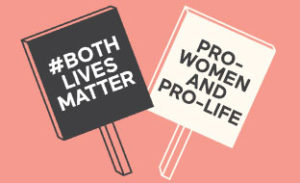Rape and sexual crimes are some of the most serious abuses of human rights and dignity imaginable. These are horrific acts of violence against women, and we should stand with and for women and girls who have been abused. From the moment the sexual abuse was experienced and where a sexual crime has been committed, women require support including throughout any subsequent pregnancy and beyond.
A degree of justice may be served in appropriate sentencing. However, when a pregnancy results from rape, it is wrong and unhelpful to assume that specific access to abortion in these circumstances is what most women want or need.
Despite playing a pivotal role in pro-abortion campaigns, there is very limited data surrounding pregnancies resulting from sexual crime. Surprisingly, contrary to what we might expect, the limited available evidence suggests that the majority of women in such circumstances choose to keep their baby. In Victims and Victors: Speaking Out about Their Pregnancies, Abortions, and Children Resulting from Sexual Assault, Reardon (2000) states that, ‘out of 192 women interviewed who had become pregnant after rape or incest, nearly all (80%) who had an abortion regretted it. Over 90% of these said they would discourage other victims of sexual violence from having an abortion’.
Additionally, in 2011, The Rape Crisis Network Ireland has found that most women who become pregnant through rape or incest did not want an abortion. ‘In 90 cases of pregnancy through rape only 17 women and girls chose to have a termination.’
These figures highlight the complexity of these cases, and challenge any assumption that abortion is the default choice or ‘solution.’ Abortion cannot undo the violation and abuse suffered and does not lead to justice. It must be remembered that abortion in itself is not care for women or medical treatment for rape or sexual crime. Compassion does not equal abortion.
Although abortion may be used as a justice argument in cases of sexual crime, it cannot provide justice in any meaningful way for the woman who has been harmed. Sexual crimes and rape are very serious, and so allegations of rape or sexual crime must be dealt with very sensitively, both for the alleged victim and the alleged perpetrator. These cases take time to prepare evidence; this is to ensure the best chance that due process and justice are served. Legally it is almost impossible to prove a rape has occurred through criminal conviction within the timescales required for an abortion. This is why very few countries have specific legislation in this area. In Ireland, the legislative solution for a pregnancy conceived through rape was to provide unlimited access to abortion in the first trimester.
We support more work on the broader cultural issues around rape and sexual crime. For example, education and development with young men and women around sexual crime, human dignity, human rights and violence against women. There must be continued support for and awareness of those offering specific, expert and immediate care for women who have been sexually assaulted. Where a child is conceived through rape we advocate for legal protections from access to mother and child by the abuser.
We also recognise the need for support systems, including parenting support for women and children who are survivors of intimate partner violence. Adoption and fostering are also life-affirming alternatives to abortion in these circumstances.
There can be healing and hope even in these very difficult situations.-

